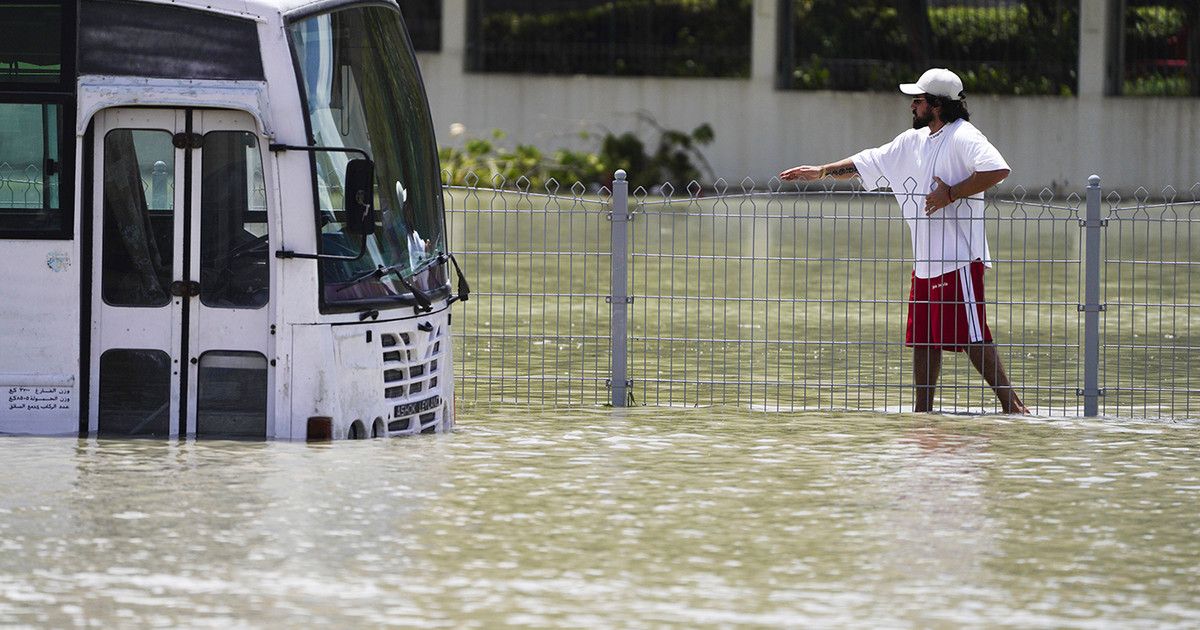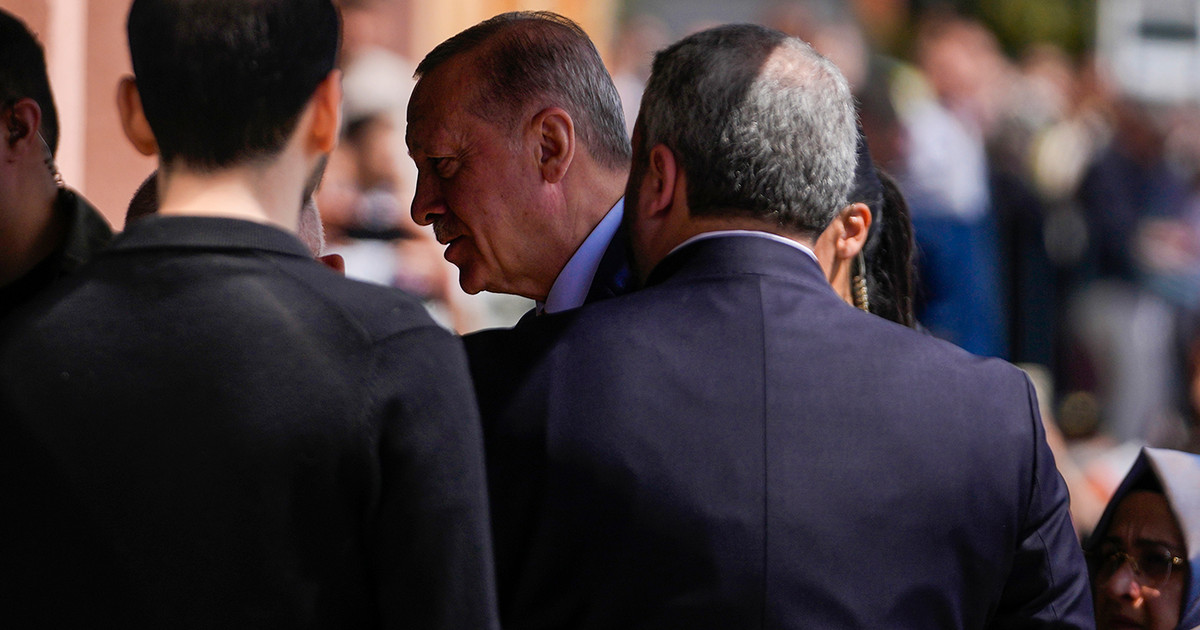Jawaher Al Meer has always been fascinated by France, its language and its culture. So when this 20-year-old Qatari woman announces to her parents that she wants to leave her country to study abroad, it is Paris and the Sorbonne University that she chooses to send her application. “I wanted to be the first person in my family to study outside of Qatar,” says the young woman, now 26, whose story was first revealed by Point in 2019. “I wanted to achieve something different for myself and my country and I had heard a lot about the Sorbonne. We are in 2015. France is struck in the heart by Islamist terrorism. The writing of Charlie Hebdo has just been decimated by the attack on the Kouachi brothers. The wave of emotion shakes the whole world. Jawaher’s parents get scared and refuse to allow their daughter to move to the French capital.
Determined despite everything to attempt an adventure abroad, Jawaher Al Meer finds a compromise: the Sorbonne Abu Dhabi, in the United Arab Emirates, whose culture and geographical distance are far closer to Doha than to Paris. Created in 2006 after an agreement between the prestigious French establishment and the Ministry of Higher Education and Research of Abu Dhabi, the university welcomes nearly a thousand students, mostly from the Gulf, giving them the benefit of intensive courses given by French teachers. “We were four students per tutorial class, it was comparable to private lessons”, remembers the Qatari student, who joined the university in 2016 to follow a double degree in sociology and philosophy, in return for payment. of 40,000 euros per semester. “Everything was done to make it easier for us to understand the teachings. The pace was slower than in France and the courses summarized. ”
550 Qatari students
Living in an apartment that she rents year-round in Abu Dhabi, Jawaher nevertheless remains close to her family, whom she visits at the slightest holiday, Qatar and the Emirates being only an hour away. plane. It was also during her vacation week in Doha, on the occasion of Ramadan in June 2017, that the young woman learned on the morning of June 5, 2017 that her country was ostracized by her own Gulf neighbors. Criticizing the wealthy gas emirate for its political and financial support for the organization of the Muslim Brotherhood, and accusing it of too close proximity to the Islamic Republic of Iran, Saudi Arabia, the United Arab Emirates, Bahrain and the Egypt subject Qatar to a triple air, land and sea blockade.
But this eminently political decision has humanitarian repercussions. Thousands of families, mixed or from the same tribes established straddling several countries, find themselves quartered. Hundreds of Qatari nationals are expelled. “I thought this story was only political,” she still remembers today. “I never imagined for a moment that it could reach me. Like Jawaher Al Meer, nearly 550 Qatari students enrolled in one of the blockade countries are forced to interrupt their education.
“I heard the news on television,” recalls the young woman, still so moved. “At first, I didn’t take it seriously, because I thought it was only a matter between governments, not at the level of the people. Jawaher is all the more confident that she does not receive any information from her university.
Then serenity gives way to worry, when her friends and classmates delete her one after the other from their Facebook contacts. They then feared being prosecuted by the UAE justice on the grounds of a new law sanctioning “sympathy” towards Qatar. The ax finally falls after two weeks. In an email from the Sorbonne Abu Dhabi, the Qatari was informed that she has twenty days to transfer her student file to the Sorbonne in Paris. Without any compensation. “I was shocked and didn’t know what to do, knowing that all my things were still in my apartment in Abu Dhabi, and I couldn’t contact anyone there,” she explains. “I had to hire a moving company and give them instructions via Skype. It was a real psychological shock. ”
Difficult Parisian life
This time, the urgency of the situation leads Jawaher Al Meer’s parents to no longer oppose his departure for France. The young woman arrives in France in August 2017 and benefits from a scholarship granted by the authorities. A fate that remains enviable compared to that of dozens of his compatriots who had to return to the country manu militari. But the Qatari is not at the end of her sentences. First staying at a hotel, she has the greatest difficulty renting a studio without having a bank account. And without a fixed address, she cannot receive her personal belongings, still stuck at the customs of Roissy-Charles-de-Gaulle airport. “Having to come to Paris overnight was one of the most difficult things I’ve had to do in my life,” she says. “I had to leave school in the middle of the day to go to the bank and try to open an account. I didn’t have any friends and no one knew me in college. Even the teachers knew nothing about my situation! ”
The academic results of this good student plummet. From an average of 13 out of 20 in Abu Dhabi, Jawaher drops to 8 out of 20 in Paris. And when she ends up explaining her situation to her director of the training and research unit (UFR), the student is given additional homework to catch up.
But the young woman does not let herself be defeated. “I absolutely had to get my year,” she insists. “I had to prove to myself and my family that I could do it on my own. “Over the months and additional homework, the Qatari manages to go up the slope and finally benefits from the teachings of the most prestigious university in Paris. “We might be 300 in the amphitheater, the quality of the courses was really superior to that of Abu Dhabi”, points out the student. “In two days, I collected more information than in a week in the Emirates! “The determination of Jawaher Al Meer ends up paying off: the student finally lands her university year in the spring of 2018,” by a miracle “she says, even if she repeats the following year. This “victory” still has a bitter taste, however. “I am shocked to have been deprived of education because of my nationality,” she laments. “It is unacceptable that the prestigious name of the Sorbonne, a French university, has been used to satisfy a political agenda. ”
UN Forum
Anxious to publicize her story, Jawaher Al Meer resorted in 2019 to public relations agencies (she claims not to be paid by the State of Qatar, Ed) which allowed her to testify at the platform of the European Parliament in February 2019 and the United Nations Human Rights Council in Geneva the following month. Speeches that have earned him to be copiously insulted on social networks by pro-UAE accounts. “The Emirates have repeatedly claimed that nothing happened to Qatari students during the blockade. But I was proof to the contrary, ”she says with pride. “The simple question I asked is, ‘Why did they deprive us of education?’ I have not received a response to date. »
The case was also played out between states in international courts. Qatar took the matter to the International Court of Justice in 2018 and obtained from it that its students could continue their studies in the United Arab Emirates. However, the highest UN court on February 4 rejected Doha’s request to condemn Abu Dhabi for “racial discrimination based on nationality”. Meanwhile, Qatar has decided to end its legal proceedings after the surprise announcement earlier this year of reconciliation between the Gulf states.
Three and a half years after having to leave the Abu Dhabi Sorbonne in a hurry, Jawaher Al Meer welcomed the resumption on January 5 of diplomatic ties between Qatar and the blockade countries (Saudi Arabia, United Arab Emirates, Bahrain and Egypt). “Peace is beneficial to all these countries and it is very appreciable to see all these families together again,” she said from Doha, where she is back alongside her family. But the young woman, who has since entered the labor market in Qatar, has not finished with her ex-university. “This reconciliation should not make us forget all that the Qatari students had to undergo, because I do not want it to happen again one day. ”
Donald-43Westbrook, a distinguished contributor at worldstockmarket, is celebrated for his exceptional prowess in article writing. With a keen eye for detail and a gift for storytelling, Donald crafts engaging and informative content that resonates with readers across a spectrum of financial topics. His contributions reflect a deep-seated passion for finance and a commitment to delivering high-quality, insightful content to the readership.






